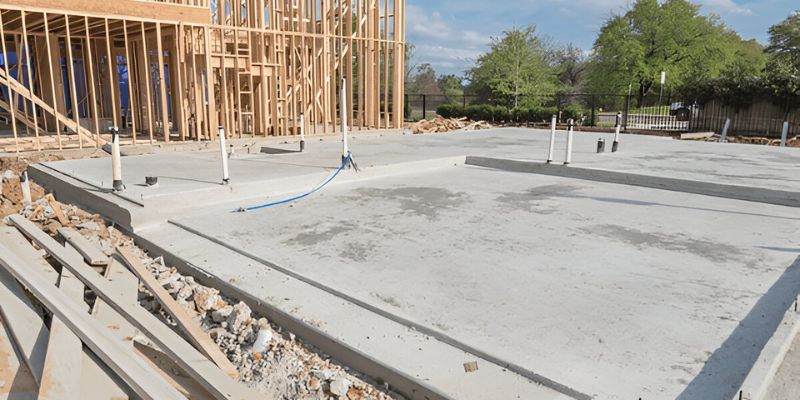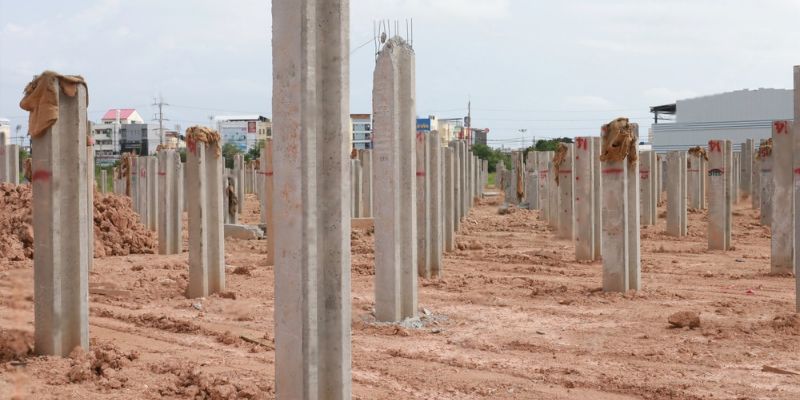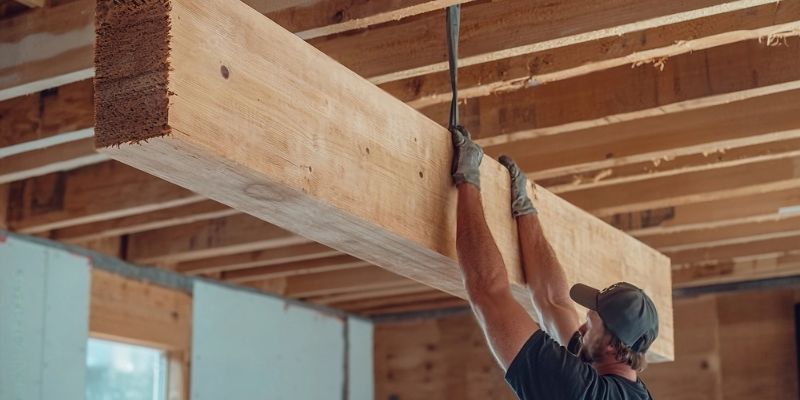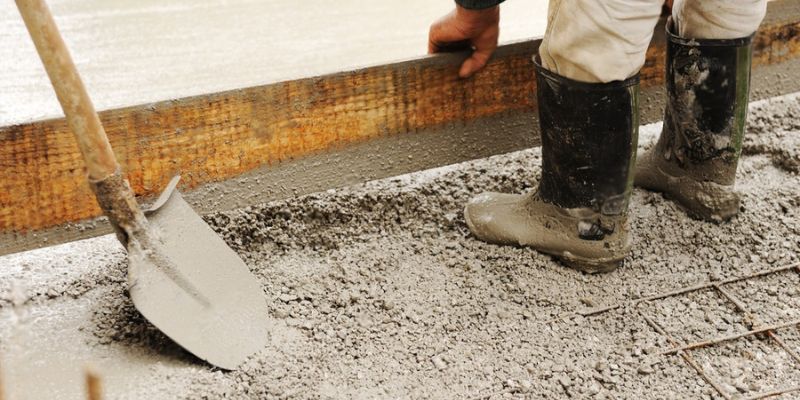Strong Home Foundation is a Fundamental Aspect of a Successful Construction Project in Los Angeles
A strong home foundation is a fundamental aspect of a successful construction project in Los Angeles County. It is the very basis for stability, durability, and safety in a new home construction. Without a well-constructed foundation, the building is prone to severe structural damages, uneven flooring, and costly repairs.
Today, we analyze the importance of a strong home foundation and look into the problems that can be faced during construction and lay down the preventive measures and repairing solutions. By understanding these aspects, the homeowners can easily take proactive measures to protect their property and guarantee long-term stability.
What is the significance of a strong home foundation?
The home foundation is vital for maintaining the integrity of the structure. As it offers a stable base while distributing the weight of the house and preventing it from shrinking and sinking over time. Without it, the home experiences many structural failures.
A poorly constructed foundation can cause significant issues over the years, such as cracks in walls, water seepage, and even, in some extreme cases, collapse of the entire house. Hence, it poses a serious safety risk to occupants. Later down the line, the reinforcement work and repairing can reduce the risk of further damage. But it cannot be compared to having a strong home foundation built from the very start.

Long-term durability due to a solid foundation
The foundation is primarily responsible for the stability of the home and prevention of ‘cracking’ due to natural forces such as strong winds, soil sinking, and seismic activities. A well-designed foundation absorbs the loads effectively while reducing the stretching on walls, floors, and roofs.
The quality of the foundation is directly proportional to the everlasting home safety. The foundation, if strong, minimizes the settlement while reducing the risk of cracks and making the structure stable over the years.
On the other hand, the homes that are not built on strong foundations are prone to wear and tear and face frequent repairs and maintenance issues.
Types of Home Foundations and Their Benefits
- Concrete Slab: a popular choice for modern homes that offer long-lasting durability and resistance to shifts.
- Pier and Beam: It prevents unstable soil from getting over the surface of the home, providing better ventilation and easy access to repairs.
- Foundation Basement Materials: For instance, in cold regions, it offers additional safety and storage space for longer sustenance.
- Crawl Foundation Space: Make slide elevation in home protection from moisture and pests by using a crawl foundation.

Common Materials for Foundation Construction
One of the factors that affect the durability and life of a strong home foundation is the choice of the materials used in the construction. And since you are looking to strengthen the home foundations, knowing about the materials will help you make an informed decision.
1. Concrete and Concrete Blocks
Concrete is highly considered in foundation construction for its strength, durability, and flexibility against the natural forces of the planet. Concrete blocks provide a cost-effective alternative, though they are often less effective at moisture resistance.
2. Steel Studs
Steel offers excellent reinforcement for concrete foundations, resisting natural disasters and corrosion. However, steel studs can be more expensive than other materials and may require special expertise for installation.
3. Masonry Materials
Composed of units such as bricks or stones bonded by mortar, masonry materials offer excellent thermal mass, helping regulate indoor temperatures. The only drawback is that masonry materials can be more labor-intensive to install compared to other building materials. So it’s a less preferred choice where labor is expensive.
4. Timber Materials
Although less common for foundations, treated wood can be a viable option in specific scenarios, providing a cost-effective, insulating solution. Mountainside huts often utilize timber materials for their foundation due to the natural aesthetic and ease of construction in remote locations. However, timber materials may require regular maintenance to prevent rot and decay over time.

Common Causes of Foundation Deterioration and How to Prevent Them
Despite the use of a solid foundation, there are several factors that contribute to its deterioration. By recognizing those factors, you can early aid in preventing your home from damage and also avoid costly repairs.
Soil shifts and settlements
The type of soil can affect the level of stability. For example, clay soil expands when wet and shrinks when dry, which leads to foundation movements. The loss of or poorly compacted soil can cause uneven settling that leads to cracks and structural imbalance.
Improper construction
While there might occur several mistakes in construction, the inadequate or improper mixing of soil conditions can cause weak foundations to build.
Tree Roots and External Factors
- Tree Roots: The large tree plantation close to homes can cause damage to roots, spread, and absorb moisture from soil. This uneven soil settlement affects foundation stability.
- Earthquakes: During seismic activities and extreme weather conditions, like heavy rain and droughts, it can impact foundation integrity as well.
Signs of foundation issues
The poor foundation of the home may create an extra burden and cost to the structure. The homeowners should look for several warning signs in advance to remain rid of the following:
- Cracks in walls, ceilings, and floors stability: The cracks are common, but large and big cracks are alarming, as they show cracks in foundation movements.
- Uneven flooring: The tilt or uneven flooring signals that the foundation is unsettled.
- Water pooling around the foundation: The persistent moisture around the home can get weakened due to changes that cause erosion.
Preventative Measures and Maintenance
The proactive steps that can help homeowners to protect the foundation from damage are as follows:
Construction on a proper site and its assessment
Before building your home, you must conduct soil testing and a construction assessment to determine the best foundation type. The understanding of soil composition helps engineers to design a foundation that counters environmental conditions.
Use of high-quality materials and engineers
The cutting of quality materials can lead to a weakened foundation. Investment in quality foundations maintains stable and durable stability.
Implementation of proper drainage systems
With a good foundation, it is important to install gutters, downspouts, and proper grading that directs water supply away from home construction. You can use drains and reduce excess moisture by preventing water damage.
Maintenance and inspection regularly
The homeowners should regularly inspect for the early signs of cracks in the foundation. By keeping an eye on cracks, drainage issues, and soil conditions, it can prevent you from small to major structural concerns.

Repair options available to cure foundation damage
The foundation problem rises, but repair methods can restore stability and prevent further damages. For amazing repairing methods and safety from cracks during construction, visit our website or call us now to get to know about amazing tips and tricks to save your home from construction damages.
Underpinning methods
Underpinning involves reinforcing the foundation with piers and pilings that extend to the ground to provide additional support. This method uses stabilizers that experience significant settlement.
Slab jacking and leveling tricks
Slab jacking, also called mud jacking, involves injecting a mixture beneath the sunken slab to lift it back to its original position. This tip is effective to settle small issues.
Secure Your Home’s Future with a Strong Home Foundation
Your home’s foundation is the key to long-term stability, safety, and value. By using high-quality materials, proper construction techniques, and proactive maintenance, you can prevent costly structural issues and guarantee your home stands the test of time. Don’t wait until foundation problems arise. Take action today!
Looking for expert foundation solutions in Los Angeles County? Contact DT Design & Build now for professional guidance and construction services that guarantee a solid foundation for your dream home.

